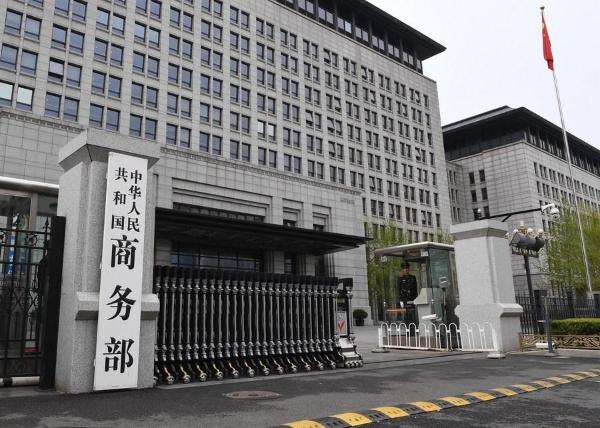
 0 Comment(s)
0 Comment(s) Print
Print E-mail Xinhua, September 24, 2024
E-mail Xinhua, September 24, 2024

An undated file photo shows the entrance to the Chinese Ministry of Commerce in Beijing, capital of China. [Photo/Xinhua]
China's Ministry of Commerce said Tuesday that it will probe into PVH Corp. of the United States under the unreliable entity list framework for suspected discriminatory measures and other practices violating market trading principles regarding Xinjiang-related products.
The U.S. company, which owns fashion brands like Tommy Hilfiger and Calvin Klein, is suspected of boycotting cotton products from China's Xinjiang Uygur Autonomous Region without any factual basis and terminating normal transactions with Chinese companies as well as other organizations or individuals, according to the ministry.
Such practices have "seriously undermined the legitimate rights and interests of relevant Chinese enterprises, and jeopardized China's sovereignty, security and development interests," said a spokesperson with the ministry.
The investigation was initiated based on recent reports from relevant organizations, and PVH Corp. is expected to provide information to the office of the unreliable entity list mechanism within 30 days as of Tuesday's announcement to explain if it had taken discriminatory measures against Xinjiang-related products in the past three years, said the ministry.
Organizations or individuals may report to the office and provide evidence regarding the company's violations of market principles, it said.
Appropriate measures will be taken based on the investigation results, according to the ministry.
China introduced the unreliable entity list system in September 2020 to protect its national interests and business environment, but it was not until February 2023 that the Chinese government first added foreign entities to the list.
The country has been exercising prudence when handling issues related to the unreliable entity list, which targets only a few foreign entities that disrupt market rules and violate Chinese laws, the ministry said.
The spokesperson reiterated the Chinese government's firm commitments to advancing high-standard opening up, upholding the multilateral trade system, and safeguarding the legitimate rights and interests of all market participants.
"Foreign entities that operate with integrity and abide by the law have no reason to be concerned," said the spokesperson.